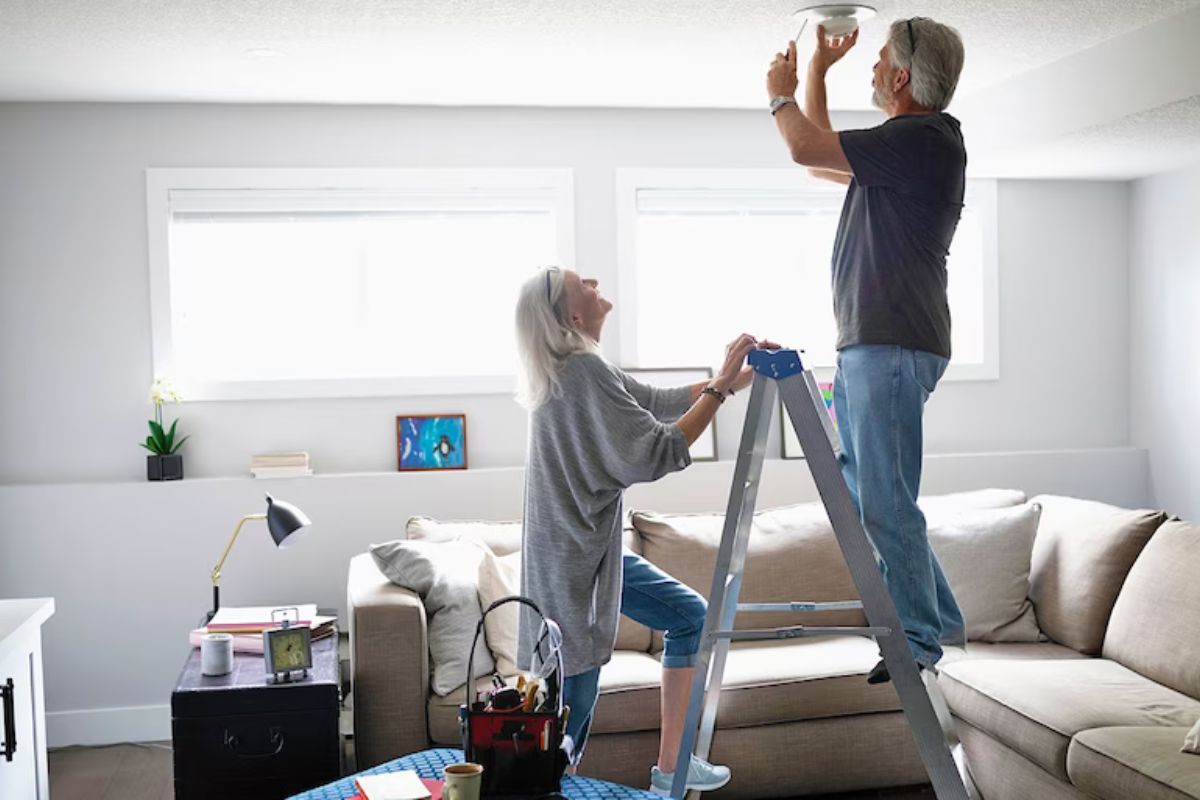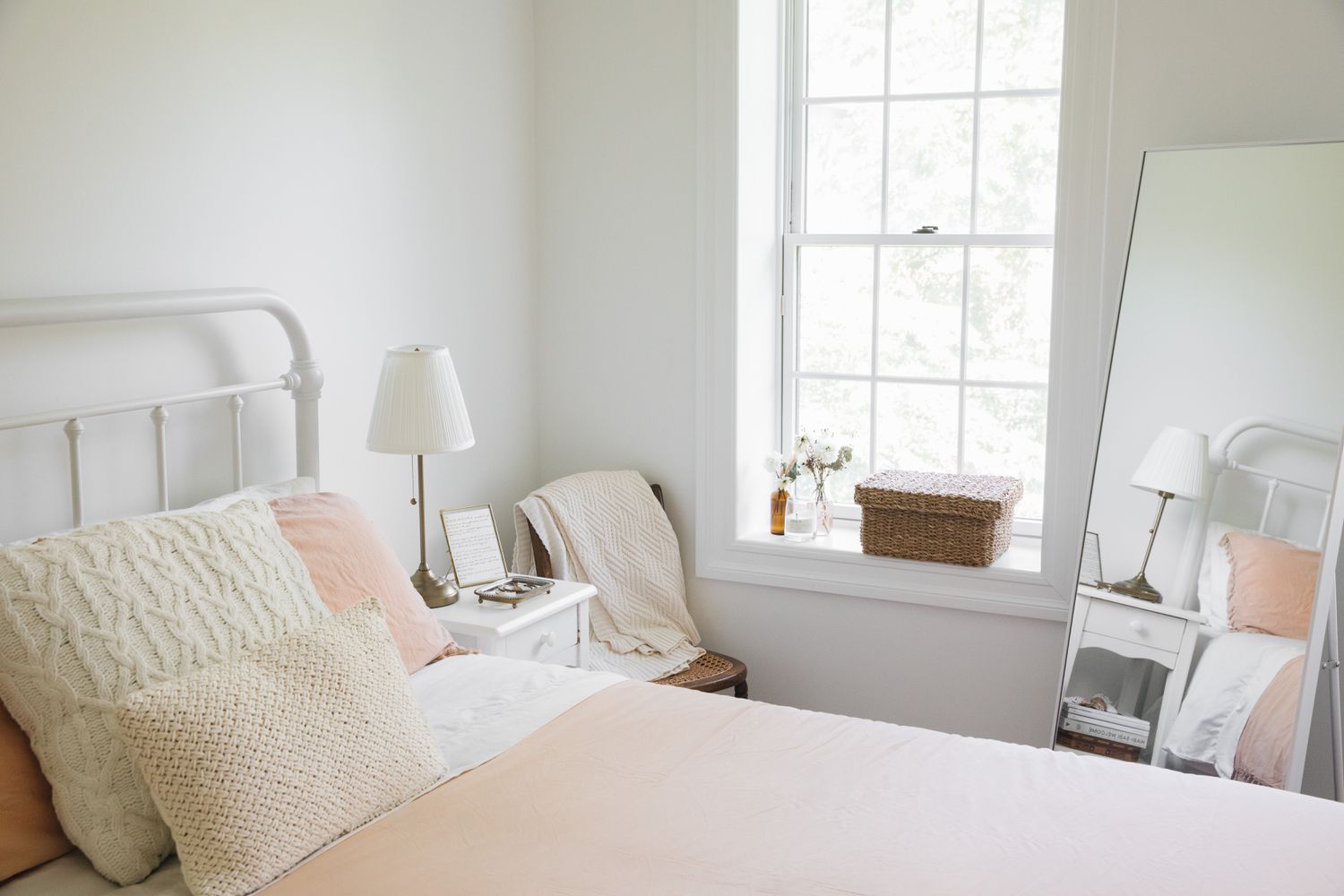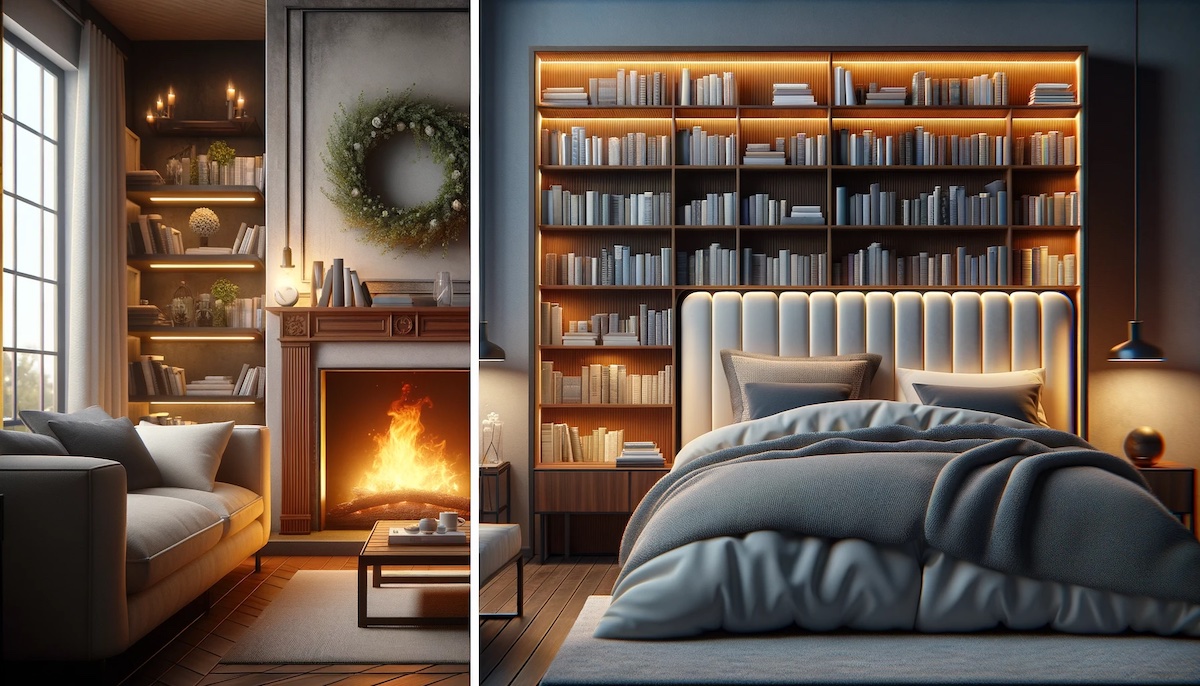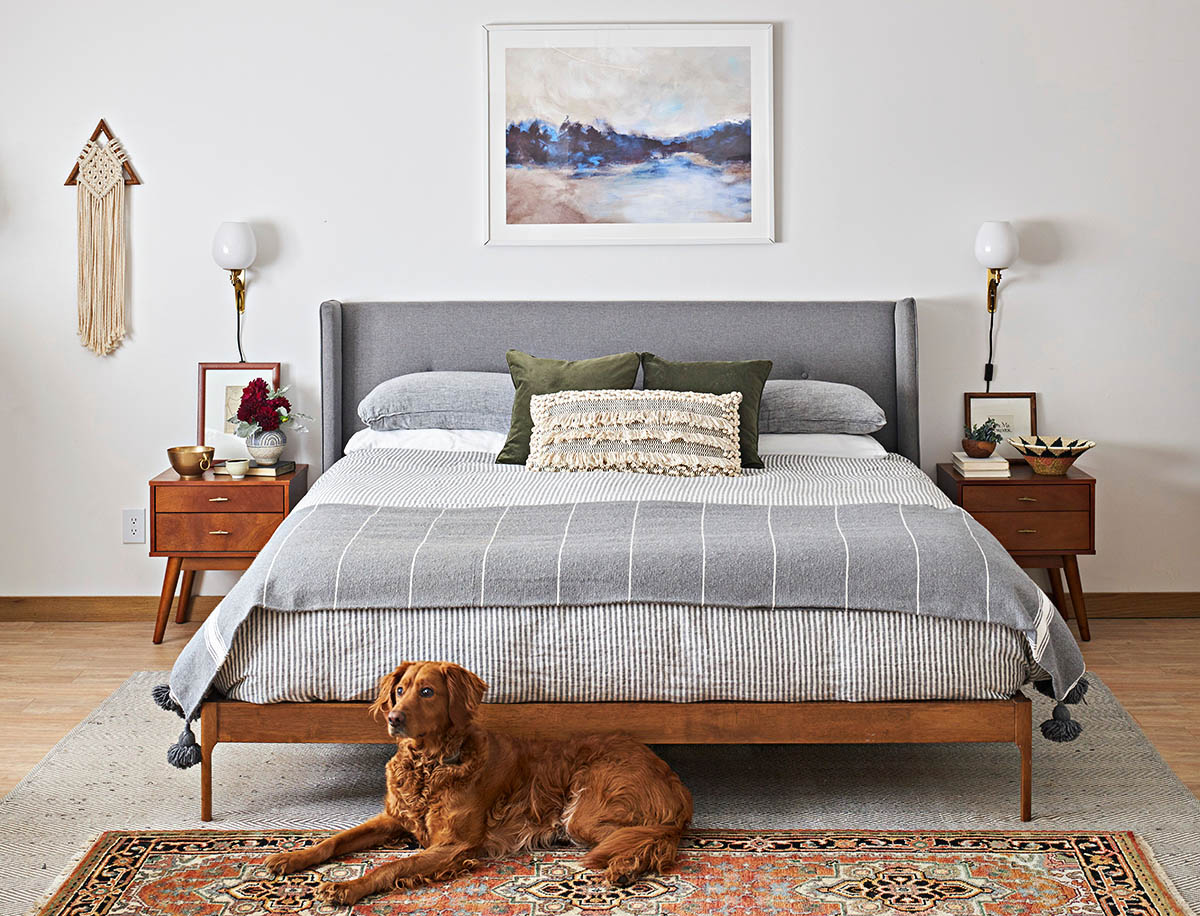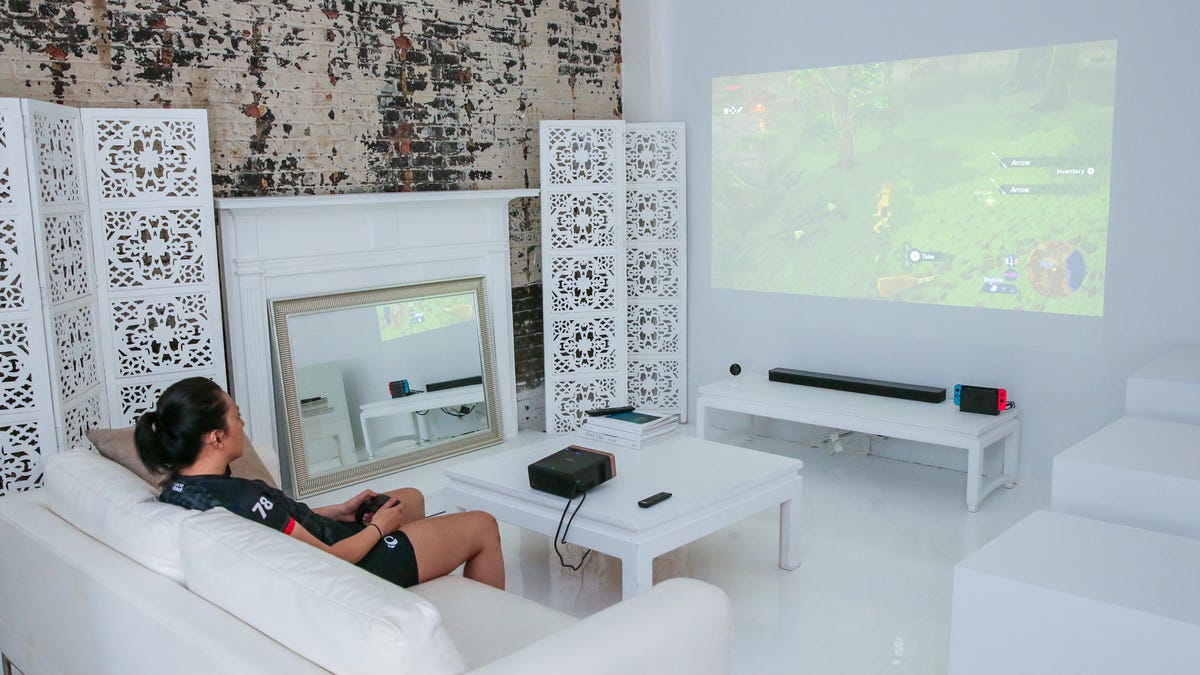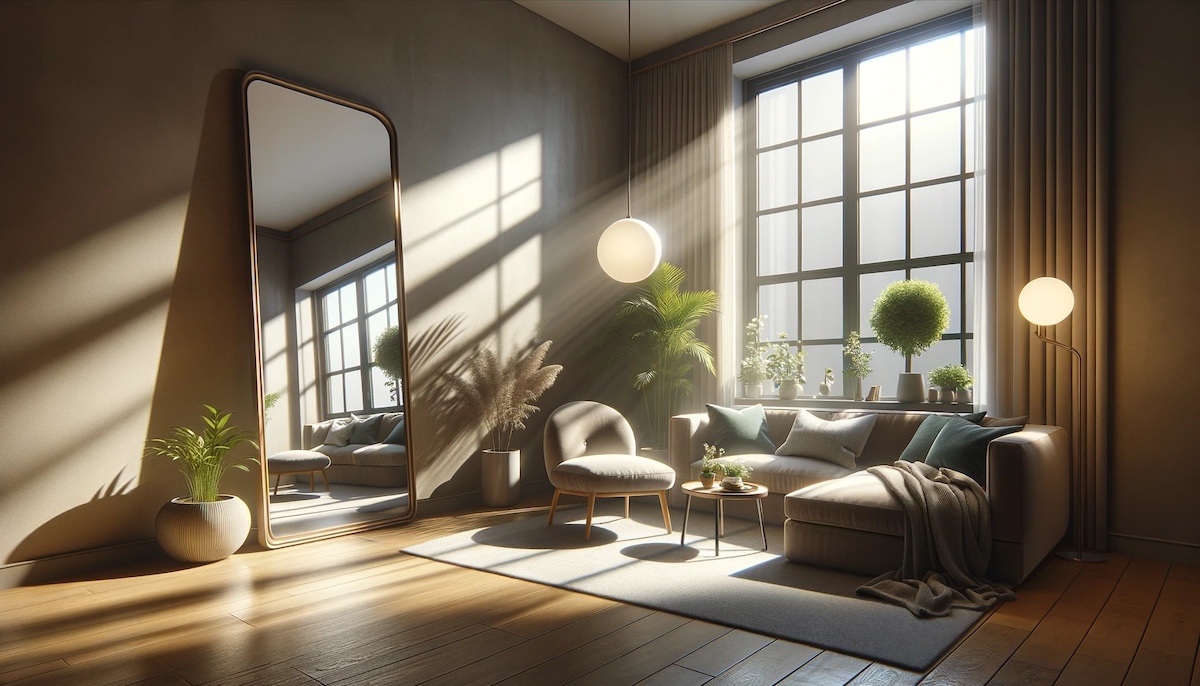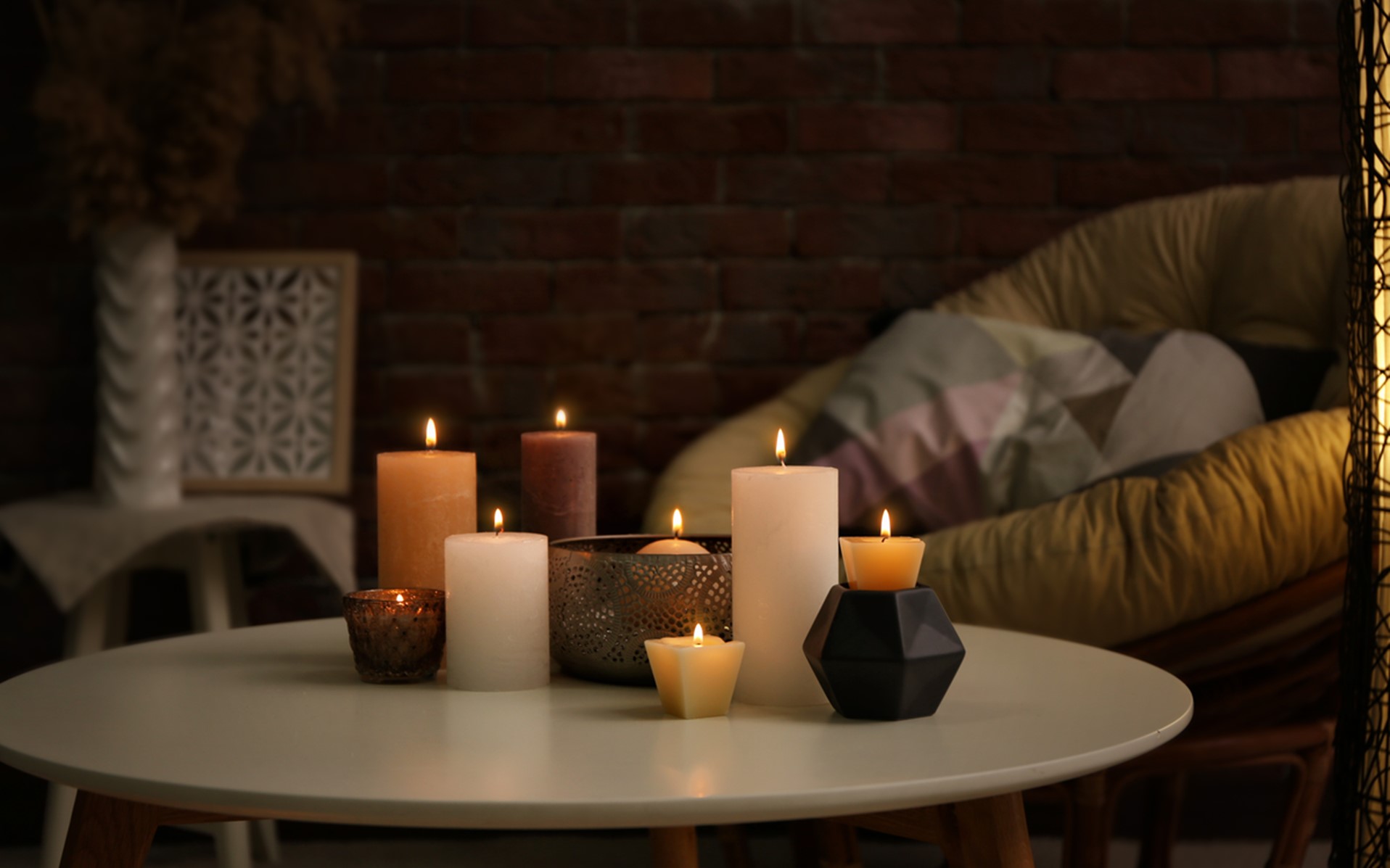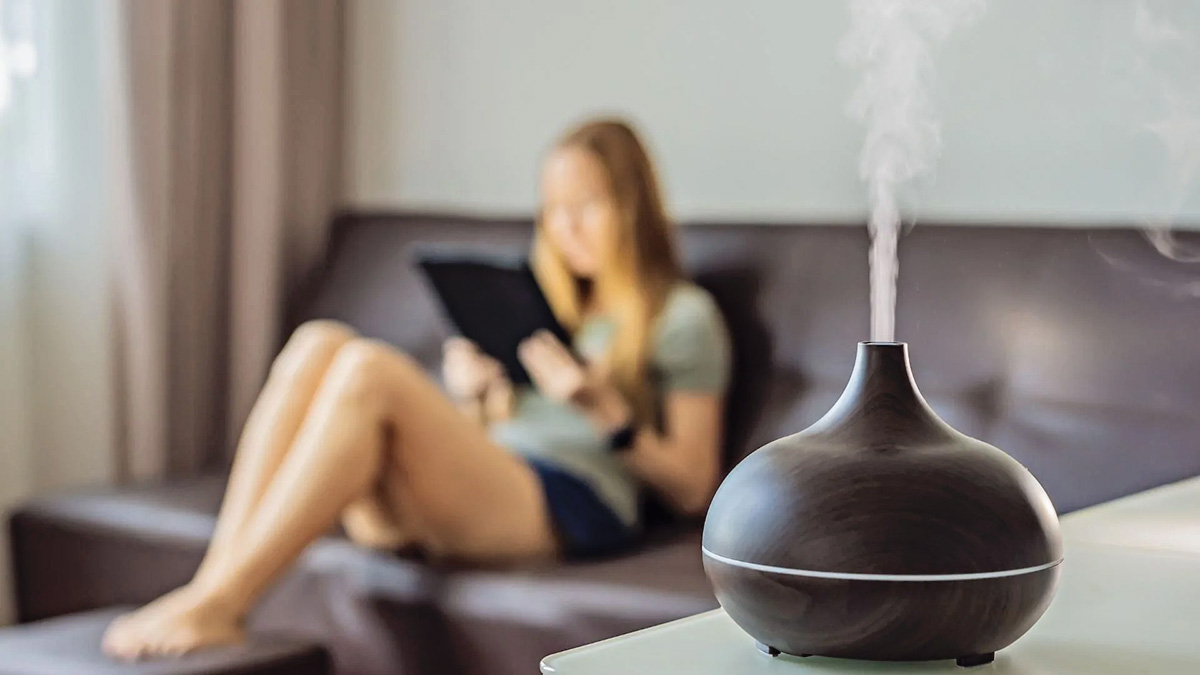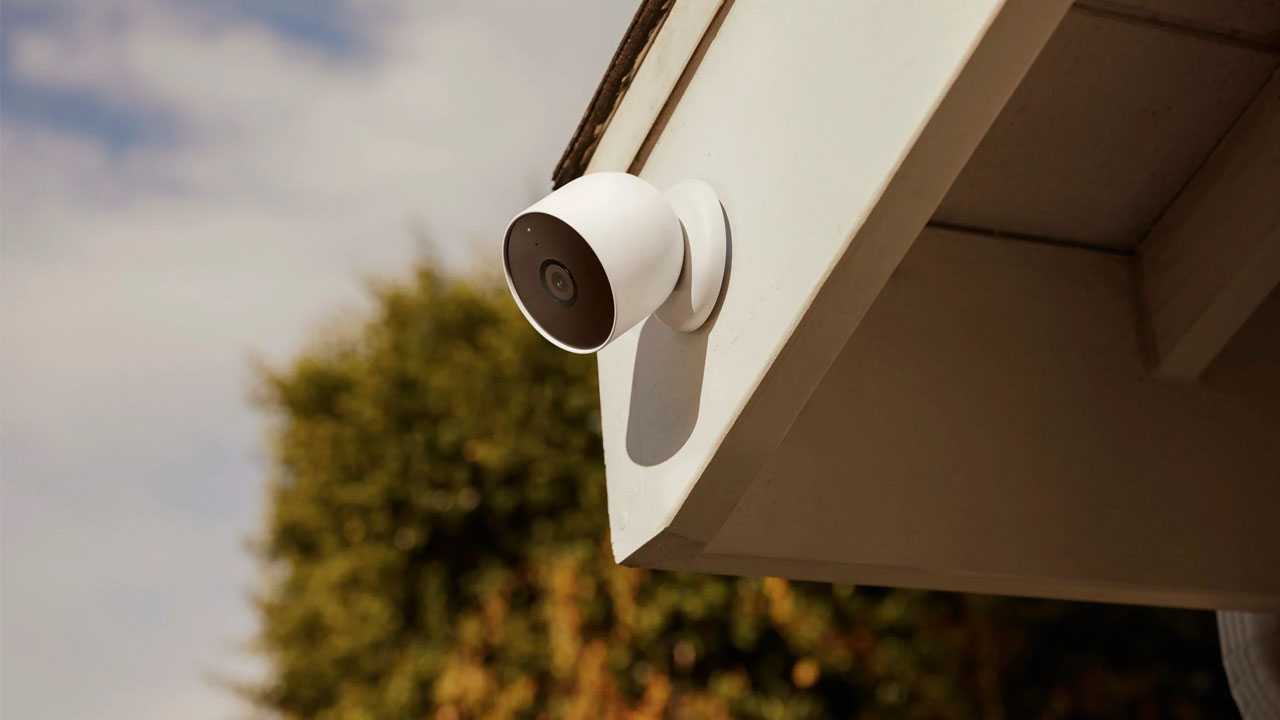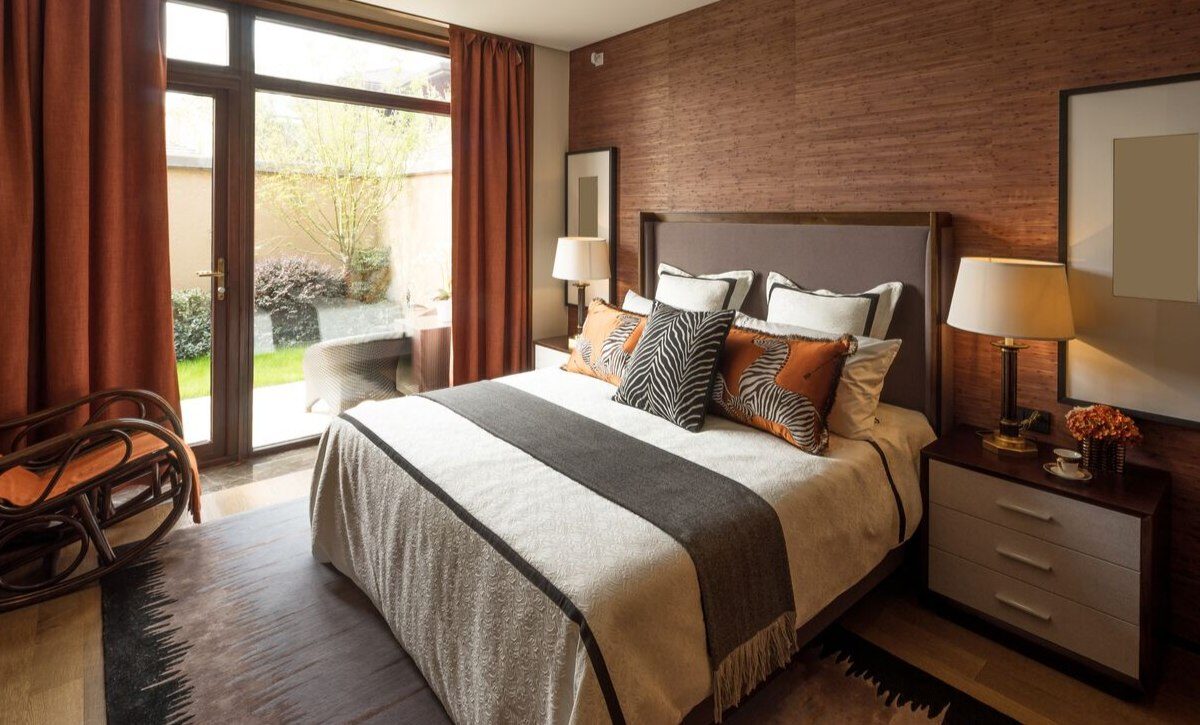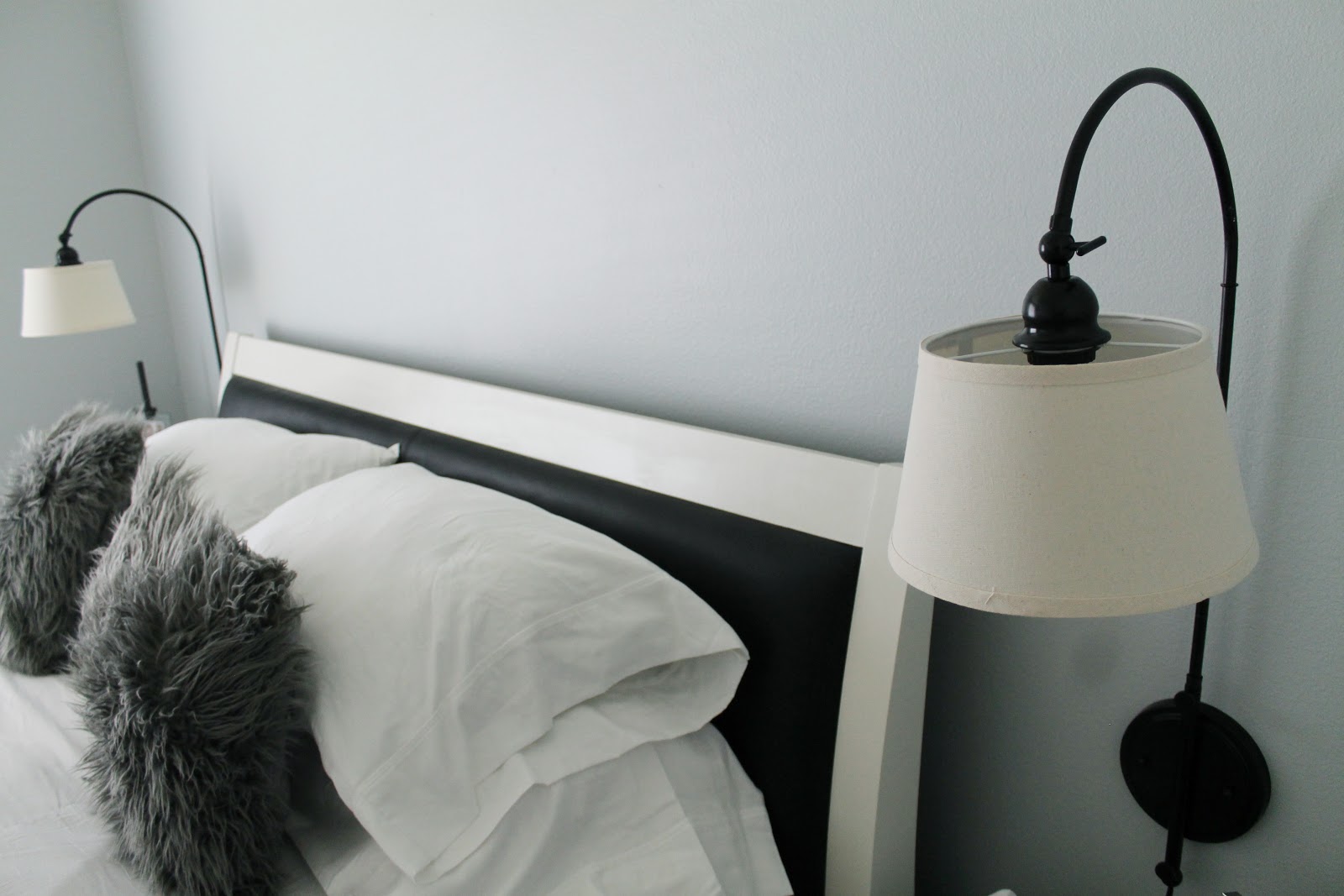

Furniture
Where To Place A Lamp In The Bedroom
Modified: August 27, 2024
Discover the best furniture placement ideas for lamps in your bedroom. Find the perfect spot to place a lamp and create a cozy and inviting atmosphere.
(Many of the links in this article redirect to a specific reviewed product. Your purchase of these products through affiliate links helps to generate commission for Storables.com, at no extra cost. Learn more)
Introduction
Having the right lighting in the bedroom is essential for creating a cozy and relaxing atmosphere. One of the key elements of bedroom lighting is the placement of lamps. A strategically placed lamp can not only provide adequate illumination but also enhance the overall aesthetics of the space. Whether you prefer a bedside table lamp, a floor lamp, wall sconces, or pendant/hanging lamps, it is important to consider various factors to determine the ideal placement.
In this article, we will explore different lamp placement options and provide helpful tips to guide you in selecting the most appropriate location for your lamps in the bedroom.
Key Takeaways:
- Strategically placing lamps in the bedroom, such as bedside table lamps, floor lamps, wall sconces, or pendant/hanging lamps, can enhance both functionality and aesthetics, creating a cozy and well-illuminated space for relaxation and rejuvenation.
- Consider factors like functionality, room layout, style, size, lighting control, and safety when placing lamps in the bedroom to achieve a balanced and visually appealing environment that meets your lighting needs. Experiment with different placements to find the perfect arrangement for your personal preferences.
Read more: Where To Place A Floor Lamp
Factors to Consider When Placing a Lamp in the Bedroom
Before diving into specific lamp placement options, it is important to consider a few factors that can influence your decision. Here are some key considerations:
- Functionality: Think about the purpose that the lamp will serve. Will it be used for reading, creating a relaxing ambiance, or adding a decorative element to the room?
- Room Layout: Consider the size and layout of your bedroom. Look for areas that may benefit from additional lighting or where a lamp can fill in any dark corners.
- Style and Aesthetics: Choose lamps that complement the overall style and decor of your bedroom. Whether your bedroom has a modern, traditional, or eclectic design, the lamp should contribute to the cohesive look.
- Size and Scale: Ensure that the lamp is proportionate to the size of the furniture it will be placed on, such as bedside tables or shelves. An oversized or undersized lamp can throw off the balance in the room.
- Lighting Control: Consider how you can control the lamp’s brightness and adjust the light levels to match your needs, such as dimming features or multiple light settings.
- Safety: Keep safety in mind when placing lamps. Make sure they are positioned away from flammable materials and that cords are properly secured to prevent tripping hazards.
By taking these factors into account, you can make informed decisions about the placement of lamps in your bedroom, ensuring both practicality and visual appeal.
Bedside Table Lamps
Bedside table lamps are a popular choice for bedroom lighting as they provide both functionality and style. Here are two important factors to consider when placing bedside table lamps:
Height and Size
The height of the lamp is crucial to ensure optimal lighting while sitting or lying in bed. Ideally, the bottom of the lampshade should be at eye level when you are in a seated or lying position. This allows for comfortable reading or other activities without straining your eyes.
When it comes to size, the lamp should be proportionate to the size of the bedside table. If you have a small nightstand, choose a smaller lamp that won’t overwhelm the space. Similarly, if you have a larger bedside table, opt for a bigger lamp that will make a statement.
Placement on the Bedside Table
The placement of the lamp on the bedside table is equally important. Ideally, the lamp should be placed towards the back of the table, leaving enough space in the front for essential items like books, alarm clocks, or a glass of water. This will ensure that the lamp doesn’t obstruct the functionality of the bedside table.
If you have a set of bedside tables, consider placing matching lamps on each side to create a symmetrical and balanced look. This can add a touch of elegance and cohesion to the overall bedroom design.
By carefully considering the height, size, and placement of bedside table lamps, you can create a well-lit and aesthetically pleasing bedroom environment.
Read more: Where To Place A Salt Lamp
Floor Lamps
Floor lamps are a versatile lighting option that can add both functional and decorative elements to your bedroom. Here are two placement options for floor lamps:
Placement in the Corner
Placing a floor lamp in the corner of the room can help illuminate the entire space while also creating a cozy atmosphere. Corner placement allows the light to be spread evenly throughout the room, helping to eliminate any dark corners. Additionally, it can serve as a decorative focal point, adding height and visual interest to the room’s design.
When choosing a floor lamp for corner placement, consider the height and style. Opt for a taller lamp to maximize the spread of light and ensure it reaches all areas of the room. Additionally, select a lamp that complements the overall decor of the bedroom to enhance the cohesive look.
Placement near a Reading Nook
If your bedroom has a dedicated reading nook or cozy seating area, placing a floor lamp near it can create the perfect ambiance for reading and relaxation. Position the lamp at an angle that allows the light to shine directly onto the reading material, providing ample illumination without causing any glare.
Consider a floor lamp with an adjustable or swivel arm, allowing you to direct the light exactly where you need it. This ensures optimal lighting for reading while maintaining a comfortable and inviting atmosphere in the nook.
When placing a floor lamp near a reading nook, take into account the size and scale of the furniture. The lamp should complement the seating area and not overwhelm or obstruct the space.
By strategically placing floor lamps in the corner of the room or near a reading nook, you can create a well-lit and inviting ambiance in your bedroom.
Wall Sconces
Wall sconces are a fantastic choice for bedroom lighting as they save space and add a touch of elegance to the room. Here are two placement options for wall sconces:
Read more: Where To Place Wardrobe In Bedroom
Placement on either side of the Bed
Placing wall sconces on either side of the bed is a classic and functional option. This placement provides direct task lighting for activities such as reading or working in bed. It also offers a symmetrical and balanced look, adding a sense of sophistication to the bedroom.
When positioning wall sconces on either side of the bed, make sure they are at an appropriate height. Ideally, the center of the sconces should be around 60-65 inches above the floor, or slightly above eye level when sitting on the bed. This ensures that the light is directed towards the right spot, providing optimal illumination without causing any glare.
Placement above the Headboard
Another stylish option for wall sconces is to place them directly above the headboard. This placement creates a visually striking focal point while also providing soft ambient lighting to the entire bed area.
When installing wall sconces above the headboard, ensure they are centered and mounted securely on the wall. Consider the size and style of the sconces in relation to the headboard to maintain a cohesive design. Additionally, you can opt for sconces with adjustable arms or dimmable features to customize the lighting according to your needs and preferences.
By placing wall sconces on either side of the bed or above the headboard, you can incorporate both functionality and aesthetic appeal into your bedroom lighting design.
Pendant or Hanging Lamps
Pendant or hanging lamps can add a touch of sophistication and visual interest to your bedroom. Here are two placement options for pendant or hanging lamps:
Placement above the Nightstands
One popular placement option for pendant or hanging lamps is to position them above the nightstands. This creates a stylish and functional lighting solution that frees up space on the bedside tables.
When hanging pendant lamps above the nightstands, ensure that they are at a height that allows for comfortable reading and illumination of the surrounding area. Ideally, the bottom of the pendant lamp should hang around 20-24 inches above the surface of the nightstand. This provides adequate light for activities like reading or working in bed while maintaining a visually appealing aesthetic.
Consider the size and style of the pendant lamps in relation to the nightstands and the overall bedroom design. Opt for lamps that complement the decor and create a cohesive look.
Read more: Where To Place Rugs In Bedroom
Placement in the Center of the Room
If you have a larger bedroom with ample ceiling height, consider placing a pendant or hanging lamp in the center of the room. This placement not only serves as a statement piece but also provides overall ambient lighting.
When choosing a pendant or hanging lamp for the center of the room, consider its size and style. A larger lamp can create a bold and dramatic look, while a smaller and more delicate one can add a subtle touch of elegance. Additionally, consider the height of the lamp to ensure it doesn’t hang too low, obstructing movement in the room.
Install the pendant or hanging lamp using a secure and reliable suspension system to ensure safety and stability.
By placing pendant or hanging lamps above the nightstands or in the center of the room, you can create a visually appealing and well-illuminated bedroom space.
Conclusion
The placement of lamps in the bedroom plays a crucial role in creating a cozy and functional space. Whether it’s bedside table lamps, floor lamps, wall sconces, or pendant/hanging lamps, considering various factors is essential for achieving the perfect lighting balance.
When placing bedside table lamps, pay attention to the height and size to ensure optimal lighting while sitting or lying in bed. Position them towards the back of the bedside table, leaving space for essential items. For a symmetrical look, consider placing matching lamps on each side of the bed.
Floor lamps can be placed in the corner of the room to provide overall illumination and create a cozy atmosphere. Placing them near a reading nook enhances the reading experience and adds ambiance. Choose adjustable floor lamps to direct the light where it’s needed.
Wall sconces can be positioned on either side of the bed to offer task lighting and a symmetrical look. Placing them above the headboard adds a decorative element and ambient lighting. Ensure they are installed at the appropriate height and centered properly.
Pendant or hanging lamps can be placed above the nightstands, freeing up space on the bedside tables and creating a stylish lighting solution. Placing them in the center of the room adds a focal point and overall ambient lighting. Consider the size, style, and height when selecting pendant or hanging lamps.
By considering factors such as functionality, room layout, style, size and scale, lighting control, and safety, you can make informed decisions when placing lamps in the bedroom. This will help create a balanced and visually appealing environment that meets your lighting needs.
Experiment with different lamp placements to find the arrangement that suits your personal preferences and enhances the overall design of your bedroom. Remember, the right lamp placement can transform your bedroom into a cozy oasis while ensuring a comfortable and well-illuminated space for relaxation and rejuvenation.
Frequently Asked Questions about Where To Place A Lamp In The Bedroom
Was this page helpful?
At Storables.com, we guarantee accurate and reliable information. Our content, validated by Expert Board Contributors, is crafted following stringent Editorial Policies. We're committed to providing you with well-researched, expert-backed insights for all your informational needs.
